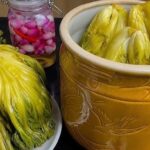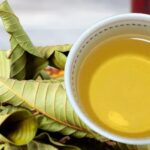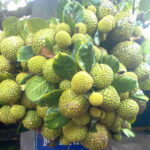Moringa, also known as the drumstick tree, is a superfood packed with exceptional nutritional value, boasting high levels of calcium and vitamin C.
According to Vietnamnet, Moringa contains four times more calcium than milk and seven times more vitamin C than oranges. Specifically, 100g of fresh Moringa leaves contain:
- Vitamin C: Seven times more than oranges
- Calcium: Four times more than milk
- Vitamin A: Four times more than carrots
- Iron: Three times more than spinach
- Protein: Twice the amount in yogurt
- Moringa also contains 18 types of amino acids and 46 antioxidants, essential for overall health.

The Surprising Benefits of Moringa
1. Heart Health and Cancer Prevention:
Moringa is rich in flavonoids, saponins, and beta-sitosterol, known for their ability to neutralize free radicals, reduce cell damage, and lower the risk of cardiovascular and liver diseases.
2. HIV Support:
Moringa is a natural “superfood” for HIV-positive individuals, as it is rich in protein, vitamins, and minerals. Regular consumption can boost immunity and improve overall health.
3. Ideal for Children and Lactating Mothers:
The World Health Organization (WHO) recognizes Moringa leaves as an effective nutritional solution for:
- Malnourished children in the weaning process
- Pregnant and lactating women
Moringa provides a high amount of healthy plant-based protein, calcium, and iron, essential for breastfeeding mothers and children.

4. Powerful Antibacterial and Anti-inflammatory Properties:
Moringa extract exhibits strong activity against Candida albicans and Gram-positive and Gram-negative bacteria. It helps prevent skin infections and fungal infections effectively.
5. Digestive Aid and Constipation Relief:
Moringa leaves are rich in fiber, softening stools, stimulating intestinal peristalsis, improving digestion, and treating dysentery and constipation. The compound moringinin also enhances digestive efficiency.
Precautions when using Moringa:
While Moringa is generally safe, some precautions should be noted:
Consult a doctor before consuming Moringa if you are taking medication for hypothyroidism, diabetes, or hypertension.
Avoid excessive consumption, especially in concentrated forms such as extracts or essential oils.
Moringa is best consumed during breakfast or lunch, avoiding excessive intake at dinner to prevent potential sleep disturbances.
Pregnant women should avoid excessive Moringa consumption as it may stimulate uterine contractions, increasing the risk of miscarriage or preterm labor.
Moringa can be consumed fresh as a vegetable or dried and brewed as tea. The leaves can also be ground into a fine powder for various culinary uses.






































